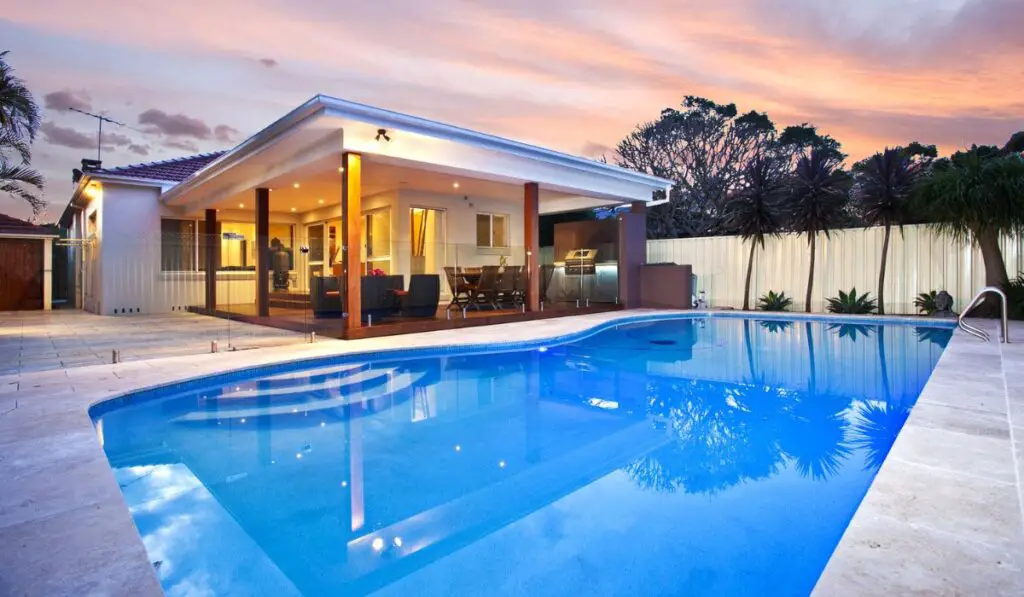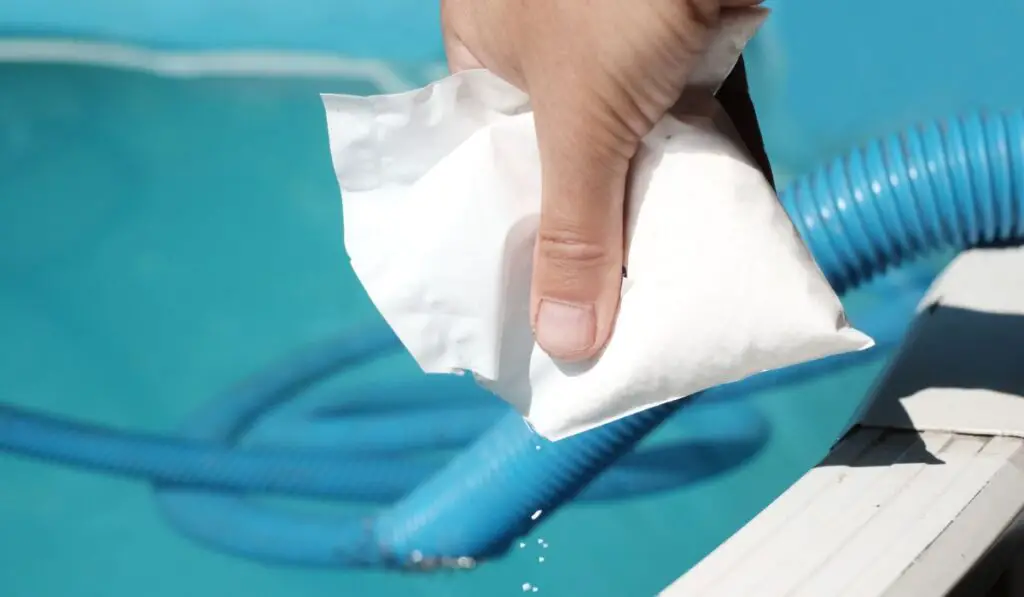It’s that time of the year again when the last option for escaping the summer heat is to spend the day in your pool. But what if you’re not in the mood to swim or don’t have the time? Even if you don’t want to swim this summer, you still need to open your pool. But why?
You should open your pool yearly to protect it from algae and pollen. Enclosed pools with still water may get overwhelmed with algae. You can maintain your pool by regularly checking its water level, ensuring the proper water pH, and with a durable pool cover.
Let’s explore why it’s crucial that you open your pool during summer and how you can save yourself the heavy cleaning expenses.
Do You Need to Open Your Pool Every Year?

The short answer is yes. You need to open your pool during the warmer seasons if you want to preserve it.
If you leave your pool stagnant during the summer season or springtime, it will become green and smelly, and the pool surface may be damaged permanently.
You should open your pool when the temperature during the daytime is about 70 degrees. You may think that 70 degrees is still not warm enough to go for a swim, but it’s undoubtedly warm for algae growth.
Most pool owners open their pools in April or May to prepare them for summer swims.
If you open your pool during summer, it also prevents pollen from collecting in the water.
So, if you are not in the mood for swimming this year or plan to go on a summer holiday, save yourself the trouble of cleaning algae and pollen by opening your pool at the right time.
What Happens if You Don’t Maintain Your Pool During the Summer?
Not opening your pool during the summer can leave it looking and smelling like a swamp! Because pools are not designed to remain enclosed with winter covers during the summer heat.
If you don’t open your pool in summer, it collects a lot of pollen. Pollen is the greatest enemy of non-circulating water.
Also, algae pores may enter the pool throughout the year, but they only bloom during the summer heat in unfiltered and non-circulating water.
As a result, your pool will become a green, smelly, slimy mess. Another issue is that algae-infested water is more likely to spread waterborne diseases, which may make your pool a health hazard.
If you don’t want to suffer through the hectic task of cleaning algae from your pool, then open your pool before the summer heat strikes. If you aren’t careful, you’ll have a tough job cleaning the pool later.
Having a pool cleaning professional clean the algae build-up is also expensive, so it’s best to keep a standard of regular pool maintenance.
How to Maintain a Pool with Minimal Effort
There can be multiple reasons for not opening your pool during summer, such as a busy schedule, house renovations, or traveling.
However, it’s still vital that you maintain your pool regularly to avoid algae and disease infestations. Fortunately, you can easily maintain your pool with minimum effort if you do it properly.
Here are some things to consider when maintaining your pool:
Maintaining Water Levels
Not having enough water in your pool can increase the risk of clogging and other issues, so you need to know how many gallons of water your pool requires. It also helps you in getting the right equipment for your pool.
The best way to check the ideal water level in your pool is to look at the pool’s manual. If you don’t have the manual, ensure the pool water level is halfway up the skimmer plate.
The skimmer is a rectangular opening built on the side of the pool wall, and it helps to maintain proper water circulation. It is crucial in cleaning pool water, so if the water level is not maintained, it can suck in air and damage the pump system.
Check the water level of your pool once a week. You need to ensure the water level of your pool is neither too high nor too low.
The easiest way is to attach a water-leveling device (on Amazon) to a garden hose. Set the water level to its required state, and the device will maintain it in your pool.
Adding Chemicals

The pH level of your pool’s water is another crucial factor in preventing it from turning white and ensuring it’s not harmful to your skin. Develop a routine of checking the pH levels of your pool.
If it’s not the required range, add water balancers such as a strong algaecide or a chlorine floater.
Another good option to prevent residue is to use lithium-based chlorine. This will prevent damage to the pool’s structure and keep your pool hygienic.
Also, regularly check that the chlorine is working and test the pool’s calcium levels. If the calcium levels increase, calcium deposits may form below the pool’s surface and permanently stain it.
Using a Durable Pool Cover
The best way to keep your pool safe from algae and pollen is to get a durable pool cover. Look for something that forms an almost airtight seal over the pool so pollen and dirt can’t enter the water.
If you aren’t planning to swim this season, then it’s time you get the right pool cover.
A good quality pool cover prevents the water from evaporating in both indoor and outdoor pools. It sustains the chemical and water balance and saves you the trouble of maintaining pH levels frequently.
Best of all, you won’t have to spend hours cleaning your pool from debris every week!
